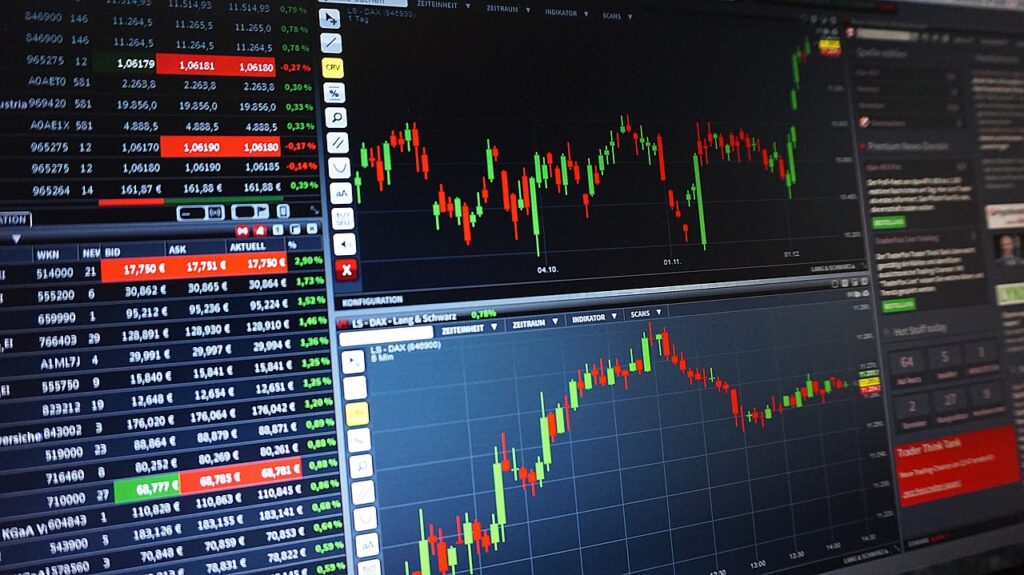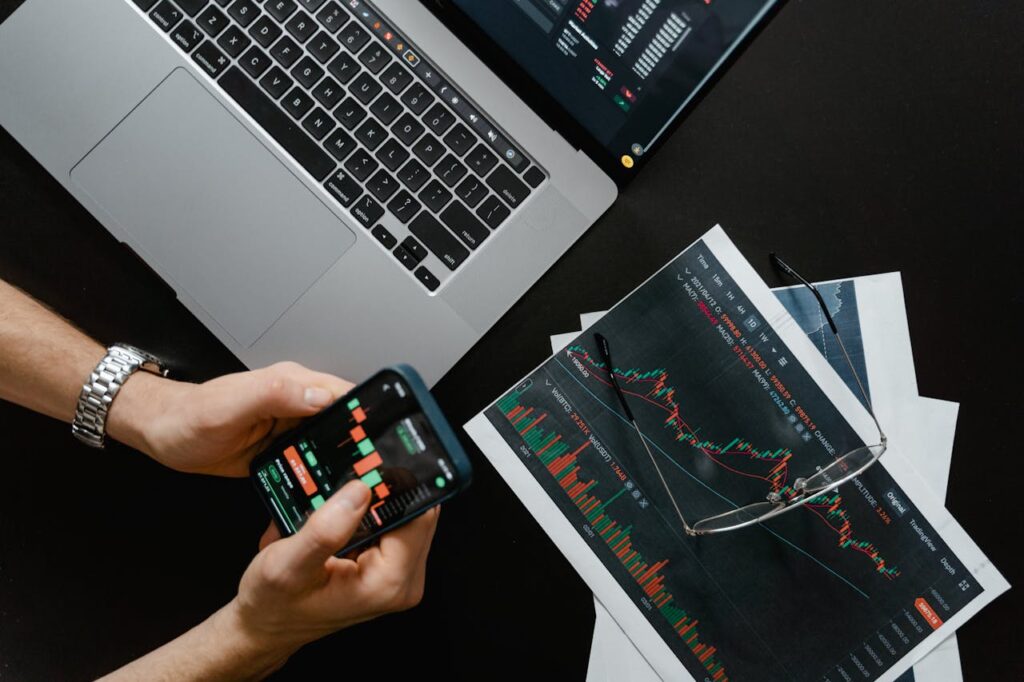Introduction
The stock market is highly dynamic and constantly influenced by various factors, including economic policies, investor sentiment, corporate earnings, and—most significantly—global news. Political events, economic indicators, natural disasters, and financial crises can cause sudden shifts in stock prices. Understanding how global news impacts stock market trends can help investors make informed decisions and mitigate risks.
In this article, we will explore:
- How stock market trends are formed
- The influence of global news on financial markets
- Case studies of major events and their effects on stocks
- Strategies for investors to manage risk during uncertain times
For a deeper understanding of market analysis and investment strategies, visit Investopedia’s Stock Market Guide.
Understanding Stock Market Trends
Stock market trends refer to the general direction in which the market moves over time. These trends can be categorized into three types:
- Uptrend (Bull Market) – Prices rise continuously over a period, driven by strong economic growth and investor optimism.
- Downtrend (Bear Market) – Prices decline consistently due to economic downturns, financial crises, or negative sentiment.
- Sideways or Range-Bound Market – Prices fluctuate within a certain range, showing neither strong growth nor a steep decline.
Stock trends are influenced by various factors, including:
- Market Sentiment: Investors’ confidence plays a crucial role in determining market movements.
- Economic Indicators: Data such as GDP growth, inflation, and employment rates impact market trends.
- Corporate Performance: Earnings reports and financial health of companies directly affect stock prices.
For expert insights into market trends and financial analysis, check out Yahoo Finance.
The Role of Global News in Stock Market Movements
Global news significantly influences stock market behavior. Major events—such as geopolitical tensions, economic policies, and health crises—can trigger market volatility. Here are some key types of news that impact stocks:
1. Economic Reports & Financial Policies
Governments and financial institutions regularly release economic data that affects stock markets. Some key indicators include:
- Interest Rate Decisions (by central banks like the Federal Reserve or RBI)
- Inflation Reports
- GDP Growth Data
- Employment Numbers
For real-time updates on global economic news, visit Bloomberg.
2. Political & Geopolitical Events
Political stability and international relations have a direct impact on global markets. Events such as trade wars, elections, or diplomatic tensions can create uncertainty.
Example:
- The Russia-Ukraine war led to global stock market declines due to energy supply concerns and economic sanctions.
- Brexit caused fluctuations in European and global markets as investors reassessed economic relationships.
For the latest updates on global geopolitical events, visit Reuters.
3. Corporate Earnings & Industry-Specific News
Quarterly earnings reports from major companies influence stock prices. Strong earnings can lead to a bullish market, while poor results may trigger sell-offs.
Example:
- When Apple reports higher-than-expected profits, its stock price increases, boosting the tech sector.
- If Tesla faces production delays, it may cause a decline in automotive stocks.
Check out CNBC Markets for corporate earnings reports and industry insights.
4. Natural Disasters & Climate Events
Natural disasters such as earthquakes, hurricanes, and wildfires impact industries like insurance, agriculture, and construction.
Example:
- The COVID-19 pandemic led to a global stock market crash in early 2020, followed by a strong recovery in technology and healthcare stocks.
- Hurricane Katrina (2005) led to higher oil prices and affected energy stocks.
5. Global Health Crises
Pandemics and epidemics cause market instability as businesses face operational disruptions. COVID-19 is a prime example of how a health crisis can reshape stock market trends.
6. Technological Advancements & Innovations
Breakthroughs in artificial intelligence (AI), blockchain, and electric vehicles (EVs) impact stock prices in the respective industries.
Example:
- The rise of ChatGPT and AI tools led to a surge in tech stocks like Nvidia and Microsoft.
- Bitcoin’s growth affects cryptocurrency-related stocks and fintech companies.
For insights into emerging tech trends, visit TechCrunch.
Case Studies: Real-World Examples of News Impacting Markets
| Event | Year | Impact on Stock Market |
|---|---|---|
| COVID-19 Pandemic | 2020 | Global markets crashed in March, followed by a tech stock rally. |
| Russia-Ukraine War | 2022 | Energy stocks surged, but global markets declined. |
| 2008 Financial Crisis | 2008 | The S&P 500 dropped by nearly 50%, leading to a major recession. |
| Brexit Vote | 2016 | UK and EU stocks experienced volatility, and the pound depreciated. |
| Dot-Com Bubble | 2000 | Tech stocks crashed after years of overvaluation. |
For a historical perspective on stock market crashes, check out The Balance.
How Investors Can Respond to Market News
With global news constantly affecting the stock market, investors must adopt strategies to protect their investments. Here are some tips:
1. Stay Informed but Avoid Panic Selling
- Follow trusted financial news sources (Bloomberg, CNBC, Reuters).
- Avoid making impulsive decisions based on short-term headlines.
2. Diversify Your Portfolio
- Invest in multiple industries and asset classes (stocks, bonds, gold, real estate).
- Diversification helps minimize losses during market downturns.
3. Use Stop-Loss & Risk Management Strategies
- Set stop-loss orders to limit potential losses.
- Avoid investing all your capital in high-risk stocks.
4. Focus on Long-Term Investing
- Short-term volatility is normal. Stick to strong, fundamentally sound stocks.
- Historical data shows markets recover over time.
5. Follow Economic Indicators & Central Bank Policies
- Interest rate hikes or cuts influence investment decisions.
- Keep an eye on inflation trends and corporate earnings.
6. Invest in Defensive Stocks During Crisis
- Defensive stocks (e.g., healthcare, utilities, consumer staples) perform well during uncertain times.
Example: During COVID-19, pharmaceutical and tech stocks outperformed.
7. Consider Hedging Strategies
- Use options and futures contracts to hedge against market downturns.
- Gold and bonds often act as safe-haven investments.
Conclusion
Global news has a significant impact on stock market trends, influencing investor sentiment and economic conditions. Understanding how different events—such as economic policies, geopolitical tensions, and financial crises—affect markets can help investors make better decisions.
By staying informed, diversifying investments, and focusing on long-term strategies, investors can navigate market volatility more effectively. Whether you’re a beginner or an experienced trader, adapting to global news is key to successful investing.
For more investment strategies, check out Investing.com.
Do you have any thoughts on how global news affects your stock investments? Share your insights in the comments below!



